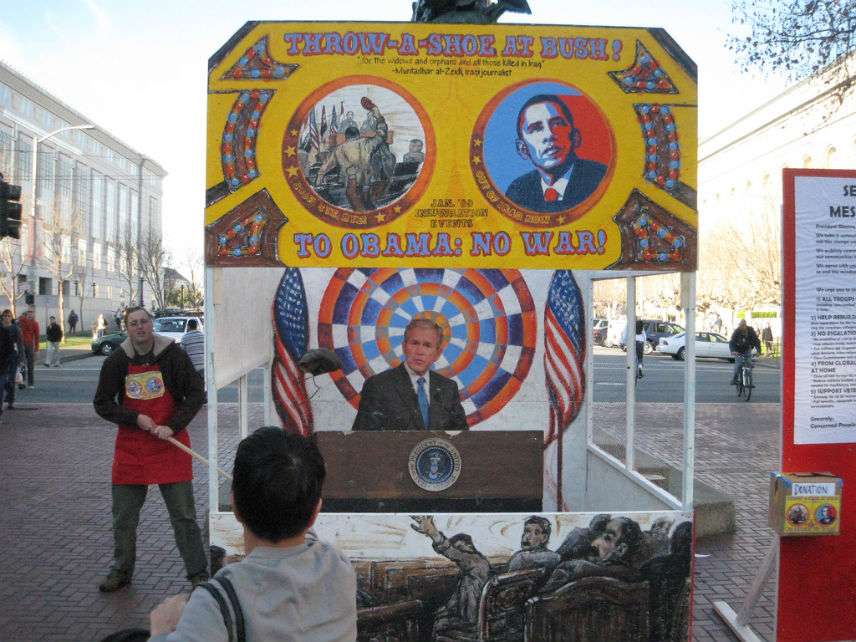The 'Politics of Division' Is 'Who We Are as a Country'
Trying to minimize those divisions isn't very democratic.

Former presidents Barack Obama and George W. Bush gave a pair of unrelated but thematically linked speeches yesterday that were widely understood to be rebukes of Trumpism. Unfortunately, the speeches also trotted out some tired clichés about division in American politics, with Bush calling out Russia for taking advantage of those divisions.
"America is experiencing the sustained attempt by a hostile power to feed and exploit our country's divisions," Bush said at a Bush Institute summit in New York City. "According to our intelligence services, the Russian government has made a project of turning Americans against each other."
Let's be clear: Americans are already and always turned against each other. In a democratic society we can be divided because we have agency. (There's a lot of political unity in places like Russia.) Free speech is messy by design, and what keeps our divisive politics from being destructive is the limits we've placed on government. The more powerful the government, the more dangerous those divisions actually become.
Obama played some of the same notes. "What we can't have is the same old politics of division that we have seen so many times before that dates back centuries," Obama said at a campaign rally for Phil Murphy, the former Goldman Sachs executive running for governor in New Jersey. "Some of the politics we see now, we thought we put that to bed. That has folks looking 50 years back. It's the 21st century, not the 19th century. Come on!"

At least Obama did not describe a mythical American past when politics was more cordial, as some advocates of less divisiveness in U.S. politics do.
Bush went further, deploring how American discourse had been "degraded by casual cruelty."
"It can seem like the forces pulling us apart are stronger than the forces binding us together. Argument turns too easily into animosity," Bush said. "Disagreement escalates into dehumanization. Too often, we judge other groups by their worst examples while judging ourselves by our best intentions."
This is true, but it's also unabashedly American. And while we can call on each other to do better, there are 320 million people in the United States; it's absurd to expect them to agree on much of anything, and it would be destructive to try to paper over all their differences.
It wasn't Russians who demanded Obama's birth certificate and it wasn't Russians who compared Bush to a chimpanzee. It wasn't Russians who said you were either with us or against us, nor was it Russians who compared Congressional Republicans to terrorists or warned black people Republicans would put them back in chains. "We" did that on our own.
The obsession with Russia's influence on American politics and the divisions in it could be a lot more damaging to our democratic norms than any Facebook ads some Russians might purchase.


Show Comments (87)